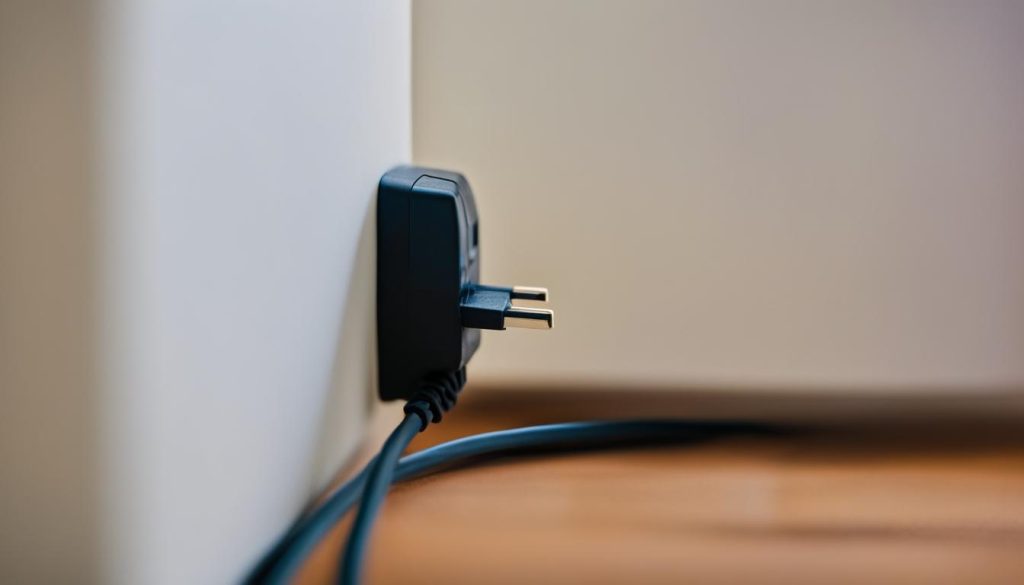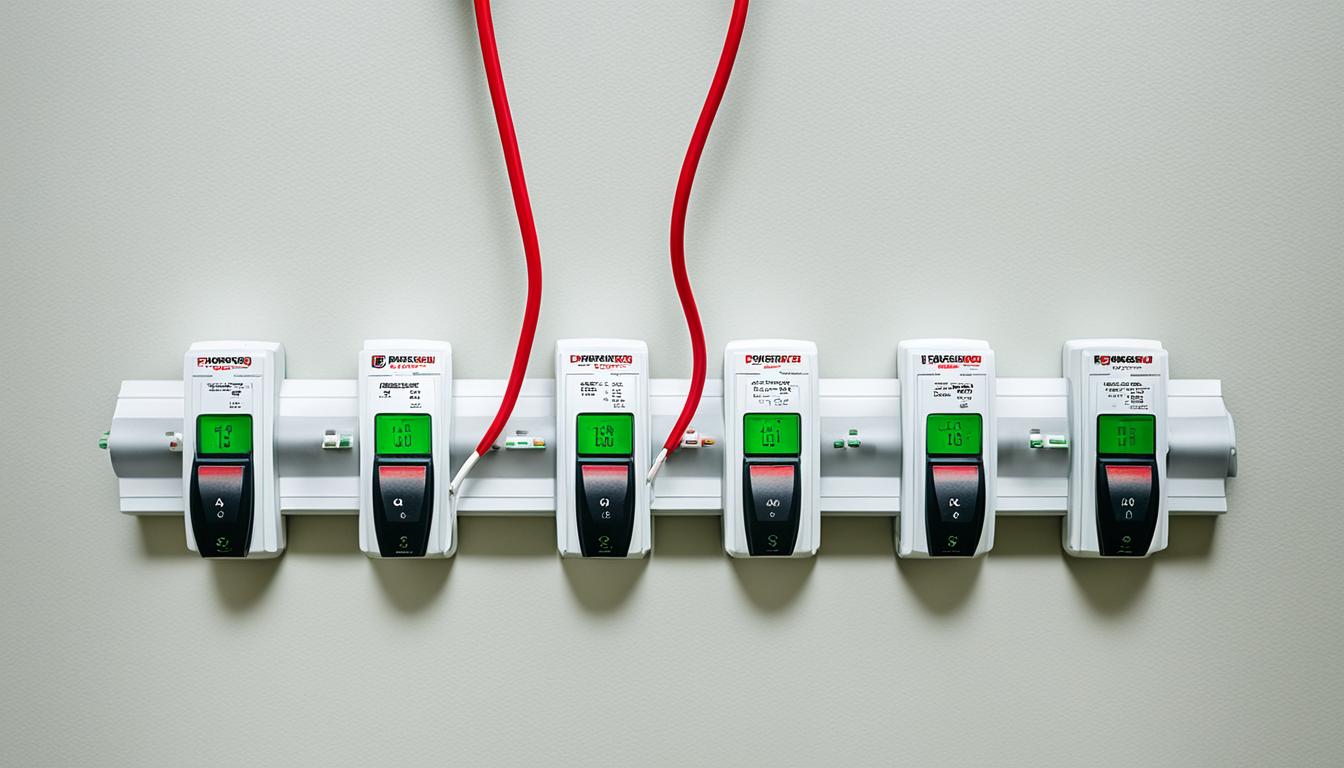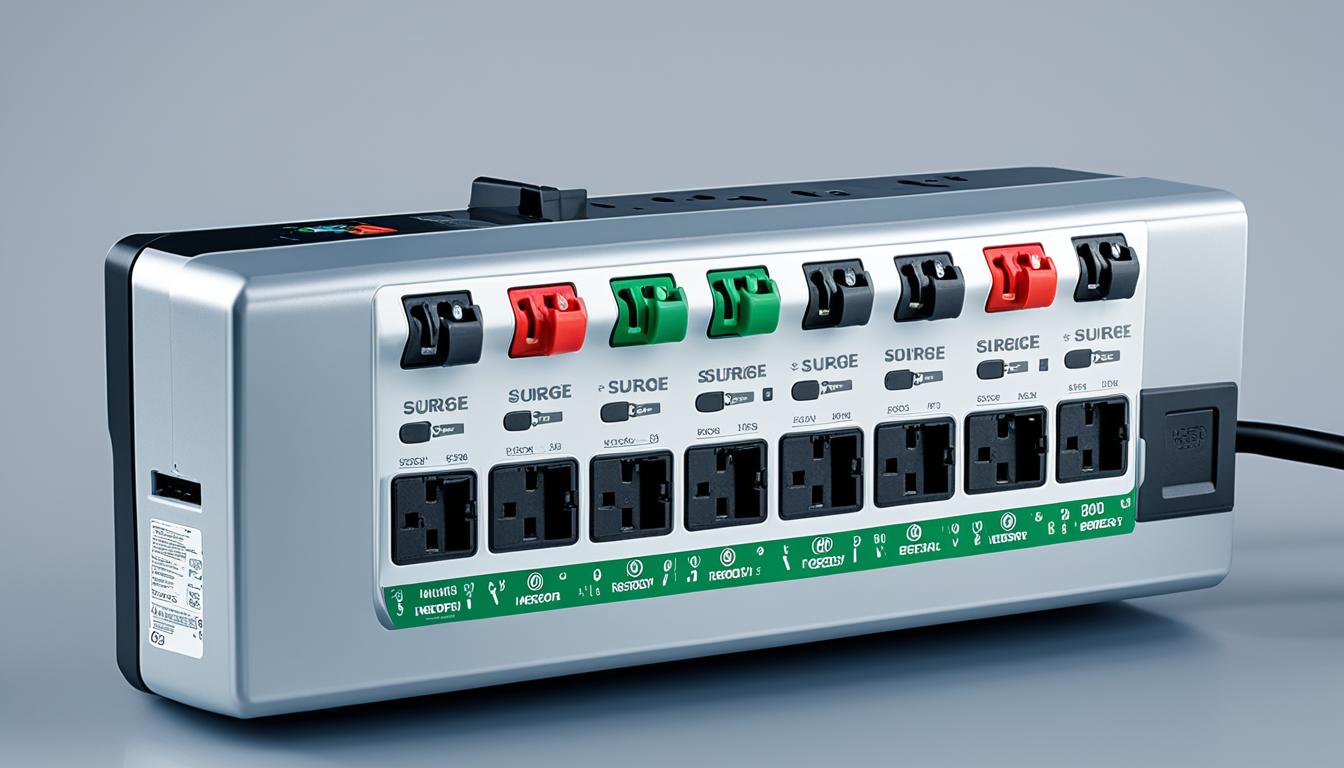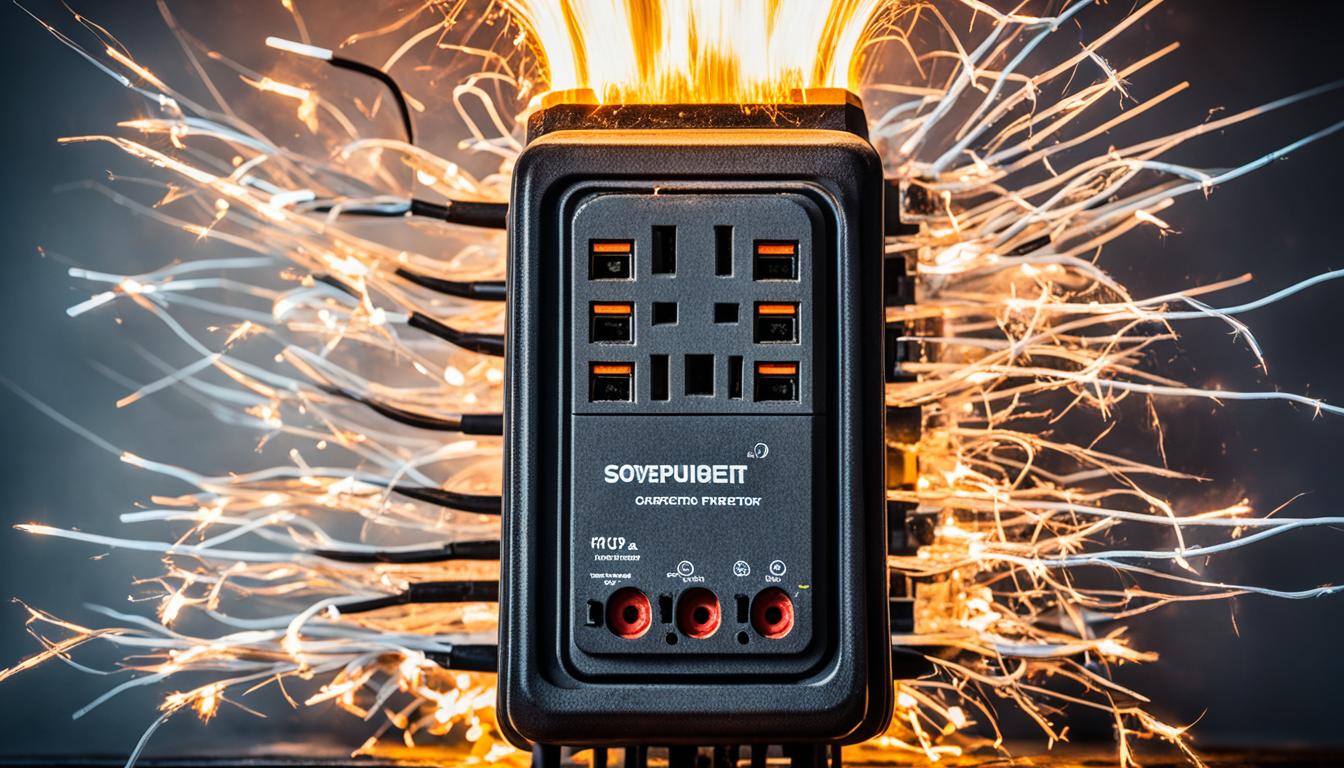extensioncords.site and its partners may earn a commission if you purchase a product through one of our links
Dehumidifiers are a popular household appliance used to remove excessive moisture and improve air quality. They are especially useful in damp environments or during humid seasons. However, when it comes to powering your dehumidifier, it’s essential to understand the safety considerations and best practices.
One common question that arises is whether you can plug a dehumidifier into an extension cord. While it is technically possible, it is not recommended for long-term use due to potential safety hazards and efficiency concerns. Dehumidifiers pull a significant amount of energy, and a standard extension cord may not be able to handle the load, leading to overheating or cord damage.
To ensure the safe operation of your dehumidifier, it is best to plug it directly into a three-prong outlet. This provides a dedicated power source and minimizes the risk of electrical issues. By using a grounded outlet, you can protect against electric shocks and potential damage to your appliance.
Key Takeaways:
- While it is possible to plug a dehumidifier into an extension cord, it is not recommended for long-term use.
- Dehumidifiers pull a significant amount of energy, and a standard extension cord may not handle the load safely and efficiently.
- For optimal safety, plug your dehumidifier directly into a three-prong outlet, avoiding the use of an extension cord whenever possible.
- Using a dedicated power source minimizes the risk of electrical issues and potential damage to your appliance.
- Always follow the manufacturer’s guidelines and recommendations for your specific dehumidifier model.
Can You Use a Heavy-Duty Extension Cord With a Dehumidifier?
If you find yourself needing to use an extension cord with your dehumidifier, a heavy-duty cord may be an option. However, it is crucial to refer to the manufacturer’s guidelines to ensure compatibility with your specific dehumidifier model.
Heavy-duty extension cords are designed to handle higher power loads and can potentially support the energy needs of a dehumidifier. When using a heavy-duty extension cord, it is essential to choose the appropriate type and rating that matches your dehumidifier’s requirements.
By following the manufacturer’s recommendations and using a proper heavy-duty extension cord, you can provide temporary power to your dehumidifier without compromising safety or performance.
Always make sure to consult the manufacturer’s guidelines for your specific dehumidifier model before using an extension cord.
| Extension Cord Type | Suitability |
|---|---|
| S-rated Cord | Generic household use, not recommended for dehumidifiers |
| W-rated Cord | Safe for outdoor use, but not ideal for dehumidifiers |
| J-rated Cord | Higher-insulated cord for heavy-duty devices, may not provide enough power for a dehumidifier |
| P-rated Cord | Heavy-duty cord suitable for temporary use with a dehumidifier (check manufacturer’s guidelines) |
What Kind of Extension Cord Can I Use With a Dehumidifier?
If your dehumidifier’s manufacturer allows for the use of an extension cord, it is important to choose the right one for optimal safety and performance. Using the wrong type of extension cord can lead to electrical hazards and potentially damage your dehumidifier. Here’s a breakdown of different extension cord types and their suitability for dehumidifiers:
S-rated Extension Cords
S-rated extension cords are generic cords suitable for general household use. However, they are not recommended for dehumidifiers due to their limited power capacity. Using an S-rated extension cord may result in overheating or tripping the circuit breaker, potentially putting your dehumidifier at risk and compromising its effectiveness.
W-rated Extension Cords
W-rated extension cords are designed for outdoor use, typically with power tools or appliances that require higher durability. While W-rated cords are safe for outdoor applications, they are not ideal for dehumidifiers. Their lower power capacity may not provide enough energy for the dehumidifier to run efficiently, potentially causing performance issues.
J-rated Extension Cords
J-rated extension cords are higher-insulated cords used for heavy-duty devices and equipment. While they provide excellent protection against electrical hazards, J-rated cords may not supply enough power for a dehumidifier’s energy needs. It is essential to check the power requirements of your dehumidifier before using a J-rated extension cord to ensure it can handle the load.
P-rated Extension Cords
P-rated extension cords are heavy-duty cords suitable for temporary use with high-power devices, including dehumidifiers. They offer the necessary capacity to handle the energy demands of a dehumidifier, providing a safe and reliable power source. However, always consult your dehumidifier’s manufacturer for any specific recommendations or limitations regarding the use of a P-rated extension cord.
| Extension Cord Type | Recommended for Dehumidifiers |
|---|---|
| S-rated | No |
| W-rated | No |
| J-rated | Maybe, check power requirements |
| P-rated | Yes, recommended for temporary use |
Always prioritize the safety of your dehumidifier and your home by using the appropriate extension cord. When in doubt, consult your dehumidifier’s manual or contact the manufacturer for guidance on the best extension cord to use.
Can a Dehumidifier Be Plugged Into a Surge Protector?
When it comes to the power cord length of a dehumidifier, it is important to consider the safety implications of plugging it into a surge protector. While surge protectors are commonly used to safeguard electronic devices from power spikes, they may not be the best option for dehumidifiers due to their unique features. A surge protector typically has multiple outlets where you can plug in various devices. However, dehumidifiers often come with a water tank that can leak, posing an electrical or fire hazard if the water comes into contact with the cords of the surge protector.
For optimal safety, it is best to plug your dehumidifier directly into a grounded outlet. This allows for a more secure connection, minimizing the risk of electrical incidents. Additionally, it is advisable to keep your dehumidifier away from other potential electrical hazards or flammable items to further reduce the risk of accidents.
Benefits of Plugging Your Dehumidifier Directly Into an Outlet
There are several benefits to plugging your dehumidifier directly into an outlet:
- Enhanced Safety: By avoiding the use of a surge protector, you eliminate the potential risks associated with water leakage and ensure a safer operating environment.
- Optimal Performance: Dehumidifiers require a consistent and stable power supply to effectively remove excess moisture from the air. Directly plugging into an outlet helps maintain a reliable power source, leading to better performance.
- Convenience: Plugging your dehumidifier into an outlet eliminates the need for additional cords or adapters, simplifying the setup process.
Remember, always consult the manufacturer’s guidelines for your specific dehumidifier model to ensure you are following the recommended power cord length and usage instructions. By prioritizing safety and utilizing the proper electrical connections, you can enjoy the benefits of a dehumidifier while maintaining a secure environment in your home.

| Pros | Cons |
|---|---|
| Enhanced Safety | Potential electrical or fire hazard if water leaks onto surge protector cords |
| Optimal Performance | N/A |
| Convenience | N/A |
Why Do Some Appliances Say Not To Use an Extension Cord?
Have you ever wondered why some appliances, including dehumidifiers, advise against using an extension cord? The answer lies in the specific needs and safety considerations of these appliances. For optimal performance and safety, it is essential to understand why using an extension cord may not be recommended.
One key reason is that certain appliances require a permanent power source to function efficiently. They may have higher energy demands that an extension cord cannot adequately provide. This can potentially overload the cord, increasing the risk of overheating and fire hazards. To ensure the longevity of your appliance and the safety of your home, it is best to follow the manufacturer’s guidelines regarding power sources.
Moreover, extension cords can create hazards when used with appliances involved in heating and cooling processes, such as dehumidifiers. These appliances may require a stable and direct power supply to maintain the intended temperature and air quality. When an extension cord is introduced, there is a higher risk of fluctuations or interruptions in power flow, which can negatively impact the appliance’s performance and potentially result in malfunctions.
Before connecting any appliance to an extension cord, including a dehumidifier, always consult the product manual to determine if it is allowed. Take into account the appliance power cord length and consider the potential tripping hazards if the cord is not properly managed. By understanding the reasons behind the cautionary advice, you can make informed decisions and ensure the safety and optimal performance of your appliances.
FAQ
Can you plug a dehumidifier into an extension cord?
While it is possible to plug a dehumidifier into an extension cord, it is not recommended for long-term use. Dehumidifiers pull a significant amount of energy, and a standard extension cord may not be able to handle the load. It is best to plug dehumidifiers directly into a three-prong outlet for safety and efficiency.
Can you use a heavy-duty extension cord with a dehumidifier?
In some cases, it may be possible to use a heavy-duty extension cord with a dehumidifier as a temporary solution. However, it is important to check the manufacturer’s guidelines for your specific dehumidifier model. Heavy-duty extension cords are designed to handle more power and may be able to support the energy needs of a dehumidifier. When using a heavy-duty extension cord, ensure that it is the appropriate type and rating for your dehumidifier.
What kind of extension cord can I use with a dehumidifier?
If your dehumidifier’s manufacturer allows for the use of an extension cord, it is recommended to use a heavy-duty cord suited for your dehumidifier’s energy needs. Different types of extension cords are available, such as S-rated, W-rated, J-rated, and P-rated cords. S-rated cords are generic cords suitable for general household use but not recommended for dehumidifiers. W-rated cords are safe for outdoor use but not ideal for dehumidifiers. J-rated cords are higher-insulated cords used for heavy-duty devices but may not provide enough power for a dehumidifier. P-rated cords are also heavy-duty cords and can be used temporarily for a dehumidifier, but always check with your product manufacturer for any usage recommendations.
Can a dehumidifier be plugged into a surge protector?
It is generally not recommended to plug a dehumidifier into a surge protector. Dehumidifiers have a water tank that can leak, and using a surge protector can introduce the risk of an electrical or fire hazard if the dehumidifier leaks onto the cords. It is best to plug the dehumidifier directly into a grounded outlet to ensure safety. Additionally, dehumidifiers should not be placed near other potential electrical hazards or flammable items.
Why do some appliances say not to use an extension cord?
Many appliances, including dehumidifiers, may advise against using an extension cord due to several reasons. Some appliances require a permanent power source for efficient operation, while others may draw higher voltage that an extension cord cannot provide, posing a fire risk. Extension cords can also be a hazard for heating and cooling operations. Always consult the appliance’s manual to determine if an extension cord is allowed as a power source. Keep in mind that using an extension cord with a dehumidifier can also pose a tripping hazard if the cord is not properly managed.


